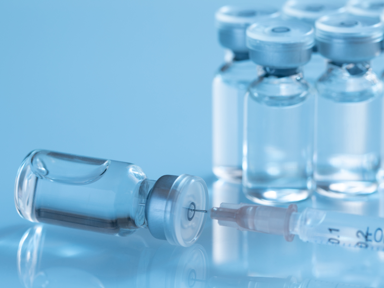firstwordpharmaJune 29, 2021
Tag: AstraZeneca , COVID-19 , Vaccine
A sub-analysis from two studies indicates that a long interval between the first and second doses of AstraZeneca's COVID-19 vaccine Vaxzevria does not compromise immune response after a late second dose, while a third dose continues to boost antibodies against SARS-CoV-2. "This should come as reassuring news to countries with lower supplies of the vaccine, who may be concerned about delays in providing second doses to their populations," commented chief investigator Andrew Pollard, noting the new data suggest "an excellent response to a second dose, even after a 10-month delay from the first."
The report looks at volunteers aged 18 to 55 years who were enrolled in the Phase I/II COV001 and Phase II/III COV002 trials, and who had received either a single dose or two doses of Vaxzevria. In seeking to demonstrate Vaxzevria's clinical efficacy to global regulators, AstraZeneca had used data from COV002, which included 12,390 participants in the UK, as part of a pooled analysis along with another Phase III study. Some countries that went on to authorise the vaccine decided to widen the gap between doses by several weeks in a bid to stretch out supply, including the UK, which had pushed it out by up to 12 weeks.

For the latest analysis, posted Monday on The Lancet pre-print server, researchers said "we have previously shown that protection against symptomatic COVID-19 is maintained after a single dose for at least three months, despite some waning of antibody levels, and we now report that the antibody levels remain elevated for at least one year after single-dose immunisation."
Researchers said among 30 participants who received a late second dose of Vaxzevria, an extended interval of up to 45 weeks triggered a four- to 18-fold jump in antibody response, measured 28 days after the second dose. AstraZeneca noted that with a 45-week dosing gap, "antibody titres were four times higher than with a 12-week interval, demonstrating that a longer dosing interval is not detrimental, but can derive stronger immunity."
Meanwhile, 75 participants who received a third injection of Vaxzevria, given at least six months after their second, saw a six-fold boost in antibody levels and sustained T-cell response. Moreover, a third booster led to higher neutralising activity against the Alpha (B.1.1.7), Beta (B.1.351) and Delta (B.1.617.2) variants first identified in the UK, South Africa and India, respectively.
Researchers also said side effects of the vaccine were found to be well-tolerated, with lower incidents of adverse events after second and third doses than after first doses. Rare but serious cases of thrombosis and thrombocytopaenia after the first dose of Vaxzevria have emerged since the vaccine began being rolled out, although researchers highlighted recent information from Public Health England indicating this does not occur after a second dose.


Contact Us
Tel: (+86) 400 610 1188
WhatsApp/Telegram/Wechat: +86 13621645194
Follow Us:




 Pharma Sources Insight January 2025
Pharma Sources Insight January 2025


